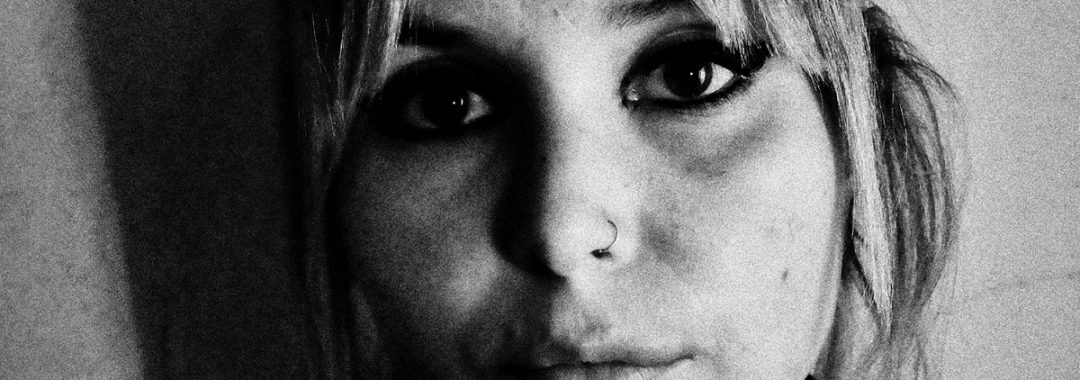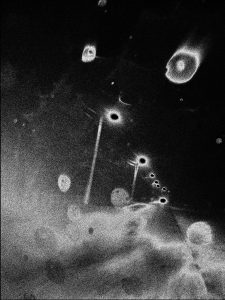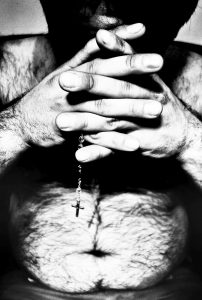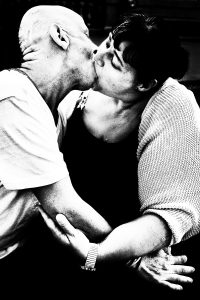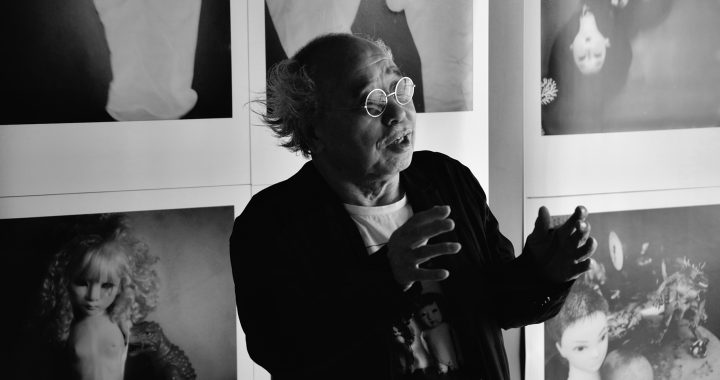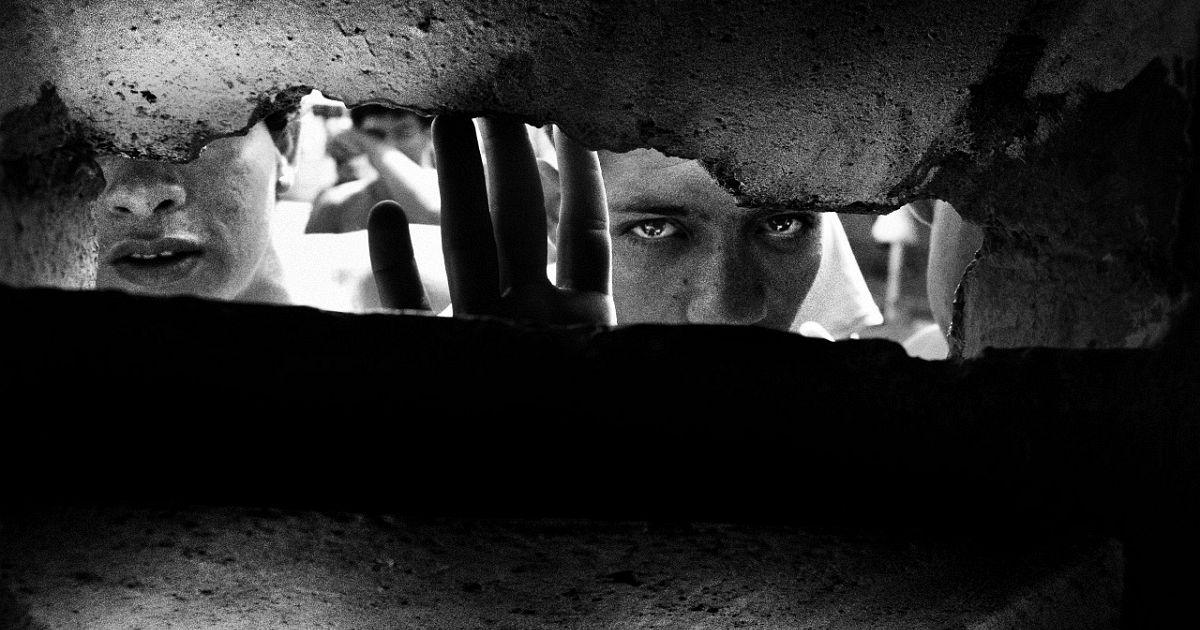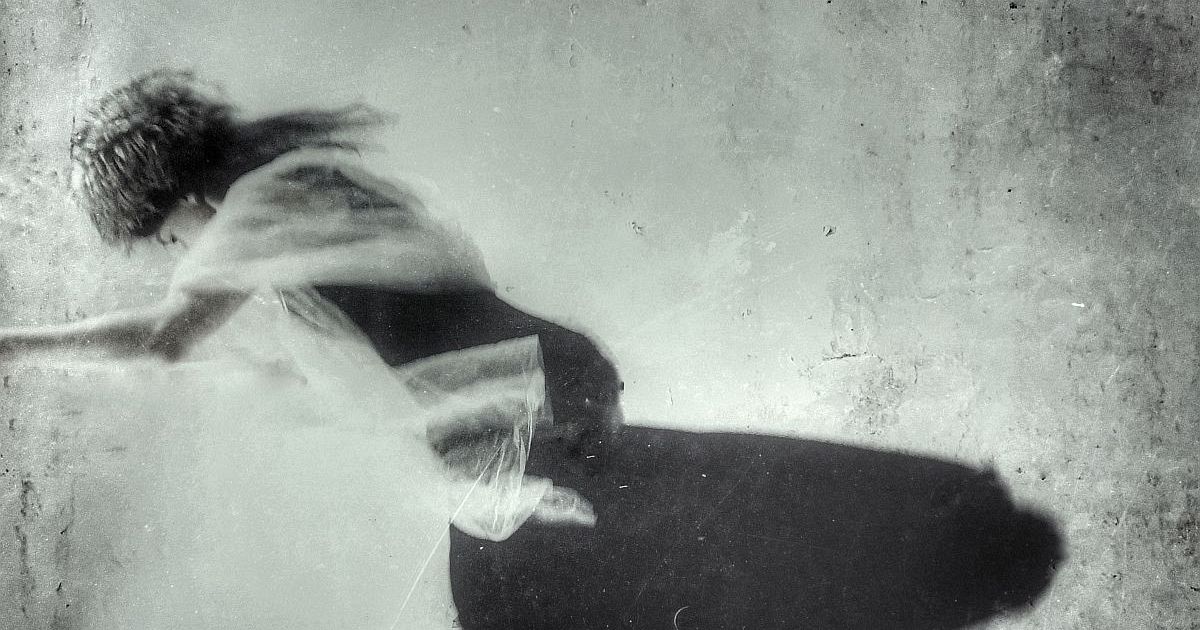Shots of strange and weird things, “the mistakes” together with abstract atmosphere create a world that makes you feel just a little bit uncomfortable, unlocking that little dark place we carry inside us. Predominantly black and white photographs with a dark and grainy style provide an intense, visceral and dramatic view of the subject, open very emotional and uncensored place without filters, rationality or intellect. Working for over a decade as a clinical psychologist has obligated Fatima to work with people´s raw, uncensored and unfiltered emotions. Her aim is to tell real stories that are in a way opened for anyone’s reality – to create photographs that are both document and fiction.
When did you start to pursue your passion photography?
I think it was around 2010 when I started to realize that I was quite in love with the still image and its power to convey what I felt. Due to my work as a psychologist and researcher, I travelled a lot and used photography almost unknowingly to register not only the touristic side of the different travels I used to make (we´re all tourists at some point in our lives and know the feeling of wanting to photograph everything new we see) but, eventually, I started looking at the images I was making and noticed I was not only being a tourist, I was also photographing my own routines and everyday feelings of those trips.
Sometimes I didn´t even have time to go out of the hotel beside going to the places I was giving the lectures but I always tried to register the places, the people I saw around me, the objects, etc. It was like I was trying to prove myself that I was there. That I existed in that time and place and I could prove it. I think that I still feel that today when I photograph: this need of proving to myself that I am really here and life isn´t something that only happens in my mind.
What motivated you to photograph?
Well… to be honest, I always wanted to be a writer, but I wasn´t very good at it (laughs). I was really devoted to poetry and was determined to live my life guided by the written word but, through the years I grew so frustrated with my inability to fully convey what I was feeling that I eventually stopped. I always left a poem feeling that something was missing and that was very difficult to process for someone that is so obsessive like myself. It was when I stopped writing that I turned to photography as a way of expressing myself and… I can´t really explain what happened. It just happened. Everything seemed to make perfect sense. I was able to go to the depths of what I wanted to say without using a word and this was a magical and very liberating feeling. I think this happens because language is a very limited way of expressing yourself and photography and the still image have this power for abstraction that really speaks to the fullness of one´s emotions. Besides, I love when someone sees one of my images and is able to interpret it in a way that I never thought about. It´s like the image has its own life and it grows with every interpretation.
You live in Portugal and your work leads through the document to strong visual elements. Have you studied photography or art at any university?
I have always been a self-taught photographer and never formally studied photography in the traditional academic sense and I don´t think I would ever be able to do so. The truth is that what I like in photography and its use for me comes from a very emotional, visceral and uncensored space within myself and this place has no room for filters, rationality or intellect. I understand – obviously – the need of being able to think about your work and study the field but, I think that you do not need to attend any university to be able to do so. Just be passionate and curious about it. Investigate for yourself, be aware and knowledgeable of your field and ponder, reflect on this knowledge you are getting and how it makes sense for the work you are conducting. Photography is my way of communicating but, more importantly, photography is my life and I can´t see any sense in anyone attending a university to learn how to live their lives.
You worked as a forensic and clinical psychologist, collaborated in research projects, gave lectures at universities and started to grow your photographic portfolio. Do you think your profession shaped your view of photography and the way how you take pictures?
I definitely think it has. I have worked for over a decade as a clinical psychologist and this always obligated me to work with people´s raw, uncensored and unfiltered emotions. Every single day of my life was filled with other people´s emotions and, in a way that is what I look for when I am photographing. I do not want to experience the stability or rationality of everyday life. I want the emotions.
Also, I feel that the empathy needed for the work as a psychologist is a plus when you´re photographing someone. I don´t feel good about using people and their emotions only for their photographic value. I really believe that if you are kind, honest, and truly a good and interested person, the image becomes better because you will be able to make better pictures if you understand the person you are photographing and the relationship is conveyed in the image, adding a new and different dimension to it.
Where would you like to get with your photographs? What is it about photography that has persuaded you to abandon your previous job and focus on studying and working in this field?
You can´t really explain love, can you? I have worked as a clinical psychologist for over a decade. I had a steady job, a long-time boyfriend and steady expectations on what my future should become: I would be married eventually, have kids, continue trying to help other people, travel a lot and eventually get old next to my loved ones. But, around my 33rd birthday, something changed. My partner’s father died the day after my birthday after a long and difficult battle with lung cancer and our entire world collapsed. Having lost my father 10 years earlier, I was no stranger to the pain we´ve all felt but, this time was different. The loss made me rethink my entire life and what I was doing with it – as often these situations do – and I realized that I was living in pilot mode for the past five years. I wasn´t happy with what I was doing or achieving, nor I had the sense that I was fulfilled. At that time, photography was already a big obsession. A way of expressing myself. Of living.
A month after my 33rd birthday I had quit my job, left my friends, my home, the entire life I had and returned to my childhood home to study and work on photography full time. Life, as it was, had stopped being. This was one of the scariest things I did in my life but I really feel I had no other choice besides giving photography a try. I can´t really explain what about photography impelled me to do this. I just know that at that point photography had become my life and obsession and I couldn´t continue not living it. And I was right. The truth is that not a single day goes by that I regret my decision. The passion and love that I feel every day when I am working, shooting, editing, sewing the books, the hours without sleeping, sometimes without eating because I often enter an obsessive autistic state where I completely disconnect from everything around me, are worth it. This love is worth it.
As for the future and where I want to go with my photographs I really want to be able to challenge myself. I feel that I am still trying to find my own voice but the truth is that, even though I want to discover myself as a photographer, I also want to be able to never encounter myself. I can only hope that ten years from now I am still able to surprise myself with the still image. The one thing I hope never changes is my love for photobooks. I can only conceive my images and stories as a book and it is quite hard for me to imagine and conceive my stories in a gallery wall. I really like the possibility for people to take my story home, manipulate it, find different ways of reading it and, very important… keep it. I like the notion that my stories can find a place in people’s homes.
Nowadays, more and more documentary photographers lean towards the harsh, expressive position as an opponent to a sterile conceptual position. How do you perceive it and what is your outlook on photography?
I don´t know if I agree with that affirmation. I think documentary photography has changed a lot since the traditional photojournalistic approaches and has broadened its scope to something so much more abstract than even defining documentary photography is a difficult task nowadays. But I can see your point. I understand that we see a lot of photographers adopting this approach and, when I reflect on it, I think it’s definitely a cultural thing. I think that given the (not so recent) popularity of the Japanese school, particularly if you´re a European self-taught photographer such as myself, in mainstream and social media you are flooded with images and a vocabulary that is indeed very harsh and expressive but also very direct and immediate and it is quite easy to fall in love with this way of speaking. Also, I am part of a generation that is enticed by strong emotions and feelings so, it is natural that when you express yourself, you also want to convey that. Nevertheless, I really feel that the documentary field is, more and more, a field full of different voices and approaches.
Your photographs feel like an emotional document of places you have visited showing signs of you trying to understand them. What are you looking for before you capture the moment in the viewfinder?
I simply have no idea. I just think about it afterward. I know that there is a trigger, something that leads me to press the shutter and usually it has an emotional, guttural core but, to be very honest, at this point of my life I am sleeping with my camera on my nightstand. I simply shoot everything and I think this connects a little bit to my need of using the camera to document my life. It is only after the experience of shooting that I really think about the image and obviously if I am trying to do a structured work I then edit accordingly to my experience and emotions of the event but… the moment of shooting is a moment of seeing for me.
Your work is essentially based on street photography with a strong humanistic vision and your photos are on the verge of aesthetics and eeriness. What has influenced you to take this direction?
I never liked objectivity. I still don´t. I had to work several years guided by it as I worked in a scientific field but, when I turned to photography, I felt liberated of that burden. Objectivity can be a very dangerous thing since. And I also never liked pretty and happy things. They never interested me. I like the strange and weird things, the mistakes, the eerie, abstract atmospheres that make you feel just a little bit uncomfortable and in a way speak to that little dark place we all have inside.
As a female photographer, you also capture the various aspects of sexuality in a diverse position of visuality. Nan Goldin or Dona Ferrato show this world openly. With what does it attract you as a woman?
As we were discussing, I have this obsessive need to photograph life and obviously, sex and sexuality are part of life. I believe that all elements that define sexuality and sex are notions that we deal with every day. Sex is not only that physical element that leads to an orgasm – it has a complex system and multiple goals and meanings. Sex can be about power, money, love, pleasure, pain, vulnerability, relief, connection, self-esteem, etc. We could be pointing out a myriad of needs that sex and sexuality satisfy and contribute to and as a photographer, trying to understand myself and the world through the viewfinder, whenever I am talking about sexuality, sexual desire, and basic human nature, I feel the need to give it context. I don´t try to be open or direct about it, first of all, because I do not have Nan Goldin or Dona Ferrato talent to do it so beautifully complexed and layered, but also because I feel this urge to understand and convey the emotions and needs that are fulfilled by and with sexuality. This, added to my distaste for objectivity ends up raising works that can have multiple interpretations but, always give the viewer an alternation between two different kinds of worlds – the banality of everyday life that we subconsciously interact with every day and our own sexual desires.
Trent Parke in his awesome Minutes to Midnight sketches through disillusioned characters of human impersonality and the like. These elements together with style significant to Japanese photographers Moriyama and Nakahira can be found in your work as well, and capture your feelings beautifully.
Well, Trent Parke´s Minutes to Midnight is one of the books I want to be buried with (laughs). I think that was the book that most influenced my work. I remember seeing it for the first time and I was immediately in love with that disillusioned, sometimes schizophrenic atmosphere. It really spoke to me but, it was only after, when I started to study the book and understand the process and the underlying rationale behind the work, that I came across with something he said regarding it that really summed up what I wanted to bring in my photography “It is a document but a fiction as well.” In a sense that´s what I feel about life in general: we are all here, this is completely real but, at the same time, it is all a dream in the sense that we could both be living the same situation, at the same time and place and your reality would be completely different from mine because we bring to it all of our experiences and perceived it in completely different lights. And it was this book that helped me decide that what I wanted to do with photography was precisely that: to tell real stories but, in a way that could be opened to anyone´s reality and personal experience.
Regarding the Japanese influences, I have to admit they paved a lot of my path in photography since the very beginning mostly due to those immediate, emotional and unfiltered, irrationalized approaches.
We have learned you participated in several workshops with Anders Petersen, Jacob Aue Sobol, etc. How has this experience affected you?
I think it is always amazing to be able to meet your influencers but, the workshop with Anders Petersen was one of the best learning experiences I had. People always say “never meet your heroes” and I was quite afraid that this turned out to be true with him. Fortunately, I had no reason to fear it since besides being an amazing photographer he is an amazing person with a mental flexibility I could never achieve.
I must admit that before the workshop with Anders, I struggled with photographing people from a close distance. What I previously said about the empathy and relationship I feel you need to establish with the ones you photograph, didn´t come easy for me. The truth is that after having worked with people for so many years I had become a little bit numb and found myself distancing from interactions. It was Anders that motivated me to go further in this way and really approach life and experience it instead of just contemplate it and I think this was the tipping point for me. It was working with him that made me aware of the connection between myself and the act of photographing.
Photography is the photographer. And who are you?
Now, that’s a good question (and when I am 80 years old I´ll be able to answer it). I am currently diving into a new work where I explore the concept of my identity and try to answer the question “Who am I”.
As I explained previously, when I decided to quit my job, life, as it was, had stopped being, and this can be a scary notion but, not nearly as scary as what came afterward. I learned to be that person for about 33 years and all of the sudden I decided to change everything. Six months after returning home I fully realized that I knew who I had stopped being but I had no idea who I´d become. Where and how should I start to redefine myself? I simply had no identity. I was no one. I did not exist. Throughout the two years that followed that decision I struggled to find an answer, to redefine a path but, in true honesty, I have no idea of what I am doing. I am lost. I feel like a ghost. And only the camera can prove to me that I exist. That I am not a hallucination. It is only when I see myself and the world through the lens that I realize that I am there.
Fatima Abreu Ferreira is a Portuguese photographer, born in Guarda, in 1983. In 1988 she moved to the north of the country and became a psychologist. In 2017 Fatima abandoned psychology to work and study photography. She is mainly a self-taught photographer but has always developed training and workshops with her main influences such as Anders Petersen. She is currently doing the Artistic Photography Master at IPCI and has multiple publications and has exhibited nationally and internationally.
All photographs ©Fatima Abreu Ferreira.
